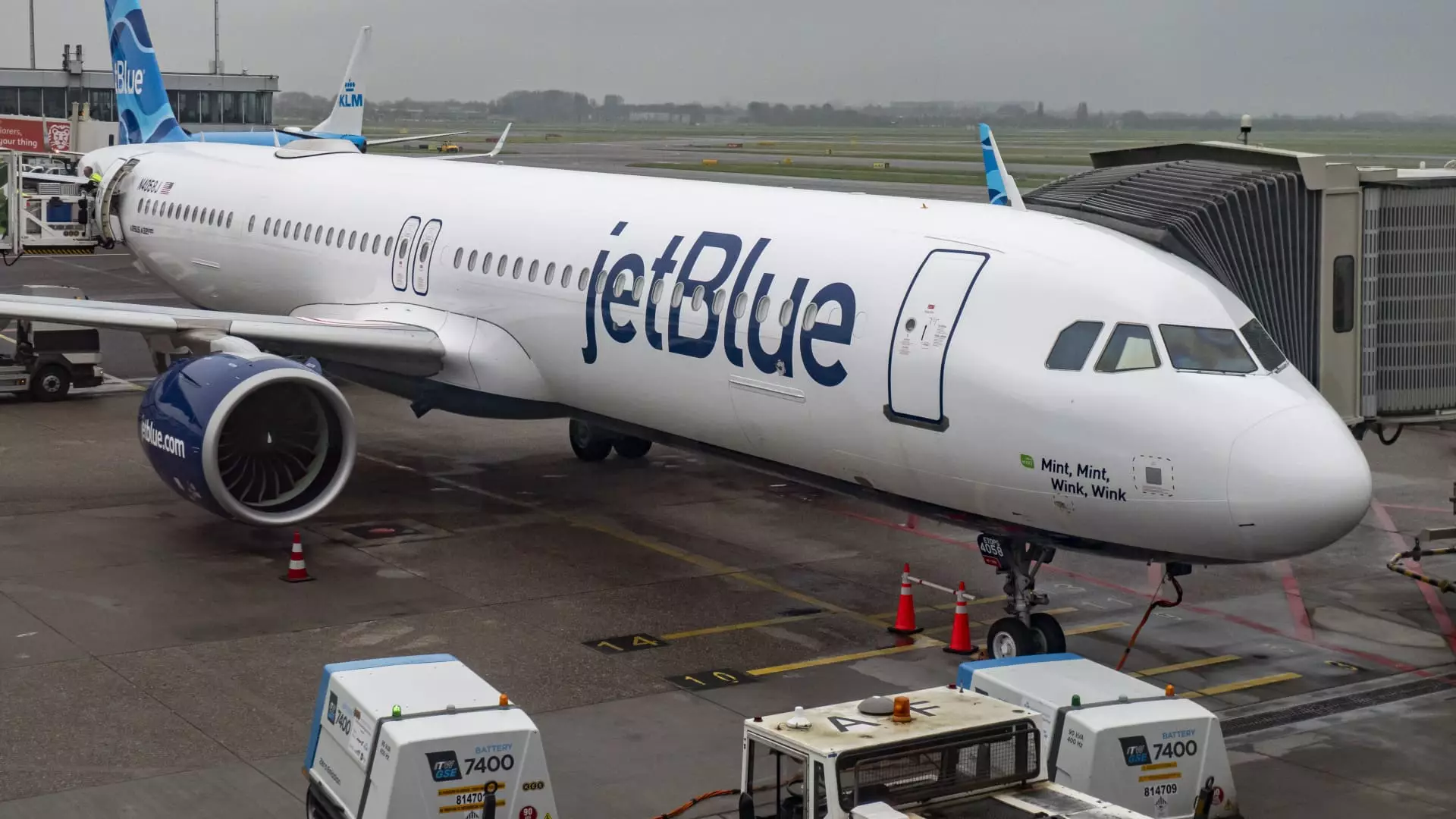In a pivotal move aimed at improving its financial health, JetBlue Airways recently informed its employees of significant operational changes designed to eliminate unprofitable routes and optimize aircraft deployment. As travel patterns continue to evolve in the post-pandemic world, the airline’s decisions reflect a focused effort to restore consistent profitability, pointing to the challenges that remain in the aviation landscape. Amidst increasing competition and fluctuating demand, JetBlue’s actions underscore a necessary pivot towards sustainability in the highly competitive airline market.
JetBlue has identified several routes that are no longer viable, announcing cuts that will impact various regions, particularly in Florida. Specific routes set to be discontinued include flights from Fort Lauderdale to Jacksonville and from JFK to multiple cities, including Austin and Miami. This strategic reduction highlights JetBlue’s need to concentrate its resources on more lucrative destinations while simultaneously addressing inefficiencies in operations. The decision to eliminate flights, such as those utilizing the Mint business class service to Seattle, emphasizes a recalibrated approach to meet shifting market demands.
Additionally, the airline’s plan to stop servicing Miami from JFK will lead to an overstaffing situation in that city, creating challenges for crew assignments. In addressing these shifts, JetBlue aims to work collaboratively with its personnel to find suitable alternatives, demonstrating a commitment to its workforce during this transitional phase.
In a note circulated among staff, Dave Jehn, JetBlue’s vice president of network planning, candidly acknowledged the realities of operating in a saturated market, particularly in Miami where legacy carriers hold substantial sway. The airline’s struggles to turn a profit in this arena are reflective of broader industry challenges, as established players like American Airlines and Delta continue to dominate the competitive landscape. The mention of profitability post-COVID serves to distinguish the current operating environment from previous conditions, highlighting how swiftly things can change in the airline industry.
Moreover, the announcement that JetBlue will decrease its European services—including the cancellation of the second JFK-Paris flight—points to a broader reassessment of international routes in light of current market dynamics. By scaling back on less profitable international offerings, JetBlue intends to refocus on high-demand markets and enhance overall operational efficiency.
Despite these challenges, JetBlue’s management remains optimistic, particularly following an uptick in revenue and bookings for the upcoming months of November and December. This positive outlook has also been reflected in the airline’s stock performance, indicating investor confidence in the company’s strategic direction. The focus on cutting costs while enhancing route performance will likely play a crucial role in JetBlue’s strategy moving forward.
As JetBlue gears up to announce new European services next week, the anticipation of fresh opportunities juxtaposed with the realities of past difficulties presents a complex scenario. Nevertheless, the airline’s ability to adapt and respond to market shifts will be key in navigating the ever-changing aviation landscape, as well as ensuring it remains competitive against a backdrop of legacy carriers.
These developments signify JetBlue’s proactive approach toward achieving long-term viability and profitability while promoting an agile response to shifting consumer needs and market pressures in the dynamic world of airline travel.

